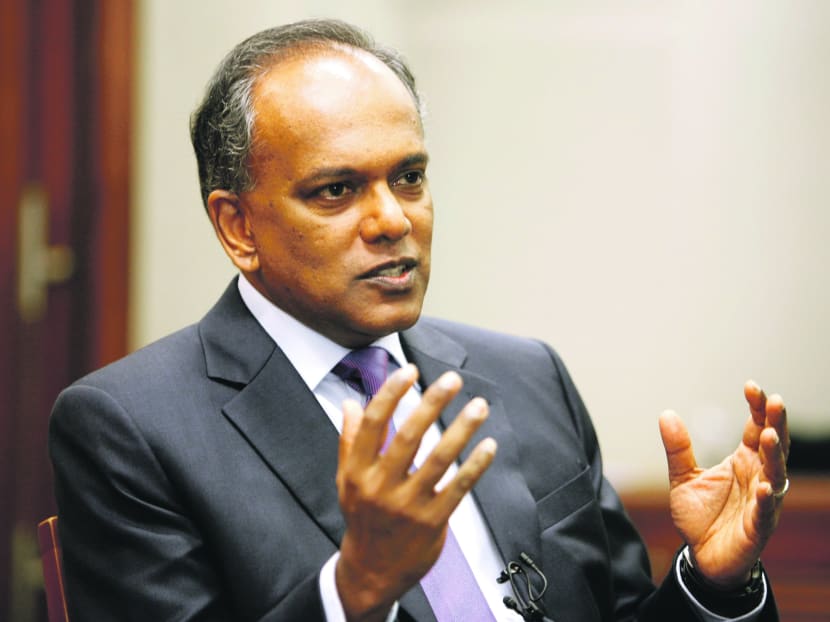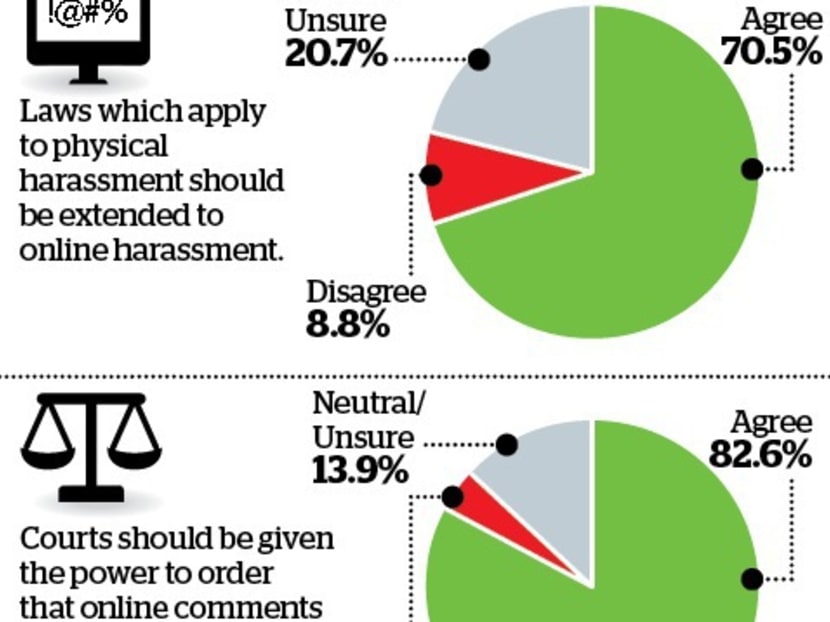Harassment laws to be strengthened by next year
SINGAPORE — The Government will put up stronger laws by early next year to better protect people against harassment, either in the form of new legislation or amendments to existing laws, Law Minister K Shanmugam said yesterday.
SINGAPORE — The Government will put up stronger laws by early next year to better protect people against harassment, either in the form of new legislation or amendments to existing laws, Law Minister K Shanmugam said yesterday.
Citing the bullying of children, sexual harassment, stalking and online harassment as examples, the minister reiterated the need to “better protect victims of harassment, both in the real world and online”.
Speaking at a conference on harassment organised by the Institute of Policy Studies, Mr Shanmugam referred to a worldwide study conducted by Microsoft last year on bullying among youth aged eight to 17. Among the 25 countries surveyed, bullying was particularly pervasive in six countries — China, unfortunately, Singapore, India, Argentina, Russia and Turkey, he noted.
He added: “Together with China, we are the only two countries among the 25 surveyed where online bullying is more pervasive than bullying in the physical world. I do not know about China but, for us, I can try and guess at a reason. In the physical world, our laws are strict. We enforce them, so law and order are very pervasive in Singapore. We know what the limits are.”
Mr Shanmugam also cited a poll of 1,009 Singaporeans aged above 15 conducted last month by the government feedback unit REACH. About eight in 10 respondents felt that online harassment was a serious issue and almost 90 per cent agreed that those who harass others should be punished under the law.
The minister pointed out that this was “not really an issue of freedom to do what you want or say what you want”, but “an issue of what conduct society would consider to be criminal or egregious and how such conduct should be regulated”.
He noted that there will be a minority who need laws to “keep them in check in the physical world ... I think the situation is no different in the online world”. Issues of harassment cannot be dealt with by legislation alone but, ultimately, by society accepting some conventions, norms of behaviour, he said.
Earlier this month, Mr Shanmugam revealed that the Law Ministry was actively looking into updating the Republic’s harassment laws, pointing out that it is “behind the curve” compared to other jurisdictions in this area.
Speaking to reporters on the sidelines of the conference, he disclosed the expected timeline for putting up the new or enhanced laws, reiterating that the law should be the last resort to deal only with egregious cases. “We can define conduct which amounts to harassment and that gives a base for people to work from,” he said.
Currently, the legal remedies for harassment are specific and do not cover general conduct. For instance, the Moneylenders Act covers harassment in the context of moneylending, while the Women’s Charter covers harassment in the context of family violence.
Mr Jonathan Yuen, a commercial litigation lawyer at Rajah & Tann who gave a presentation at the conference, told reporters that, while the law provides for issues relating to criminal intimidation, it does not extend to intimidation not concerning a person’s property or reputation.
The conference was attended by 80 participants, including lawyers, educators, social workers and civic groups such as the Association of Women for Action and Research (AWARE).
During a one-hour dialogue session, Mr Shanmugam shared that a standalone Harassment Act had not been a consideration initially. The intended approach was minimalistic, with tweaks to the wording of existing laws such as the Miscellaneous Offences Act, he added. However, he noted the participants’ general consensus in favour of a stand-alone Act and said he will consider this seriously.
Among the suggestions were anti-harassment laws for women and more accessible remedies for victims, such as a tribunal. Participants also proposed that anti-bullying policies be made mandatory in all schools.
At the conference, AWARE presented a petition — which garnered 2,000 signatures between November last year and May this year — to the Government, calling for more to be done in terms of anti-harassment laws.
AWARE Executive Director Corrina Lim said she was in favour of greater legislation against workplace sexual harassment. Nevertheless, she would support an omnibus legislation against harassment, as it “sends the strongest signal to society that harassment in all the different spheres — workplace, family, cyber, schools — is wrong and that there is recourse for this”.











